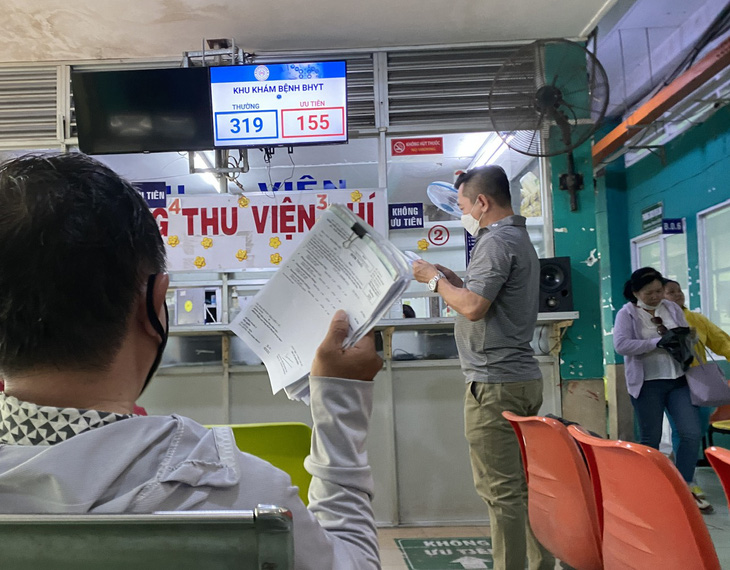
Patients waiting to pay at Phu Nhuan Hospital, Ho Chi Minh City - Photo: TU TRUNG
As reported by Tuoi Tre Online , recently Vietnam Social Security proposed to increase the time for prescribing drugs to treat stable chronic diseases (diabetes, high blood pressure...) to a minimum of 60 days and a maximum of 90 days, instead of 30 days as present.
Less travel, less waiting
Very supportive of the proposal, many readers said this "benefits many ways" and hope it will be implemented soon.
Reader Ngo Thi Thuy Hang said: "My father is 88 years old, has diabetes and high blood pressure. Every month when he goes to the hospital to get medicine, he is forced to skip breakfast to do tests. Once, my father had hypoglycemia because he skipped breakfast to wait for the test from 6am to 9am."
According to reader Le Cong Dan, "the current regulations require that not only do you have to get medicine every 28 days, but you also have to have a general test every 28 days, which is very costly and time-consuming, but the medication does not change."
Therefore, Ms. Ngo Thi Thuy Hang’s proposal above from the Social Insurance is very scientific and suitable to reality, especially for the elderly. This proposal solves many problems: reducing the hospital load; reducing travel costs for patients; reducing costs for insurance to pay for tests.
Agreeing, in the article Trang A Pao wrote: "Create convenience and reduce costs and time for patients, reduce hospital workload, reduce costs for health insurance. There is no reason to hesitate to implement".
"If that were possible, it would be good for patients, especially lonely elderly people, and would greatly reduce health insurance costs. Doctors would also have less pressure. Although the hospital's income might decrease a bit, it would benefit the people and the country," reader Le Khac expressed.
Don't forget the poor sick people
In addition, some readers gave suggestions so that this proposal could be implemented soon after considering some specific situations.
Reader Thuan Nha analyzed: "The general intention is to create convenience for patients. This is a valuable thing. However, we should also pay attention to the cases of patients who are too poor.
I know of poor patients whose doctors give them four weeks of health insurance, but they beg the doctor to give them only three weeks. Because at the three-week limit, they don't have to pay, but if it goes up to four weeks, they don't have enough money to pay.
That time I remember there was an old man running around the hospital, trying to get enough 54,000 VND to pay for additional medical insurance. There are many poor people around us, please don't forget them!
According to nguyenhungpham, "people who have just discovered the disease must have a monthly check-up, and those who are stable should come to get medicine once every two months. Patients who feel their health is not normal should request a re-examination so that the doctor can change the medicine or have a new treatment method."
"We need to consider carefully and flexibly for each type of disease and each patient. Patients are not examined for such a long time, so when they come back for a check-up, they don't have time to adjust the dosage or change the medication, and sometimes the disease has become more severe and has complications," reader Minh Vu commented.
In response, reader Minh Tran clarified: "The regulation allows a maximum of 3 months, not a mandatory 3 months. The medication is given based on the needs of each patient. Those with mild illness should ask for 3 months, those with more severe illness should ask for 1 month. There is no mandatory 3 months for a re-examination."
"In some countries, for chronically ill people with health insurance, after being examined by their family doctor and having tests done, they are prescribed monthly medication. The patient just needs to go to the nearest pharmacy to get the medication.
The drug distribution will be maintained for one year and then the patient must go for a check-up and test again to continue receiving the drug," added the Sau Thoi Su account.
Source




![[Photo] National Assembly Chairman Tran Thanh Man attends the VinFuture 2025 Award Ceremony](/_next/image?url=https%3A%2F%2Fvphoto.vietnam.vn%2Fthumb%2F1200x675%2Fvietnam%2Fresource%2FIMAGE%2F2025%2F12%2F05%2F1764951162416_2628509768338816493-6995-jpg.webp&w=3840&q=75)

![[Photo] 60th Anniversary of the Founding of the Vietnam Association of Photographic Artists](/_next/image?url=https%3A%2F%2Fvphoto.vietnam.vn%2Fthumb%2F1200x675%2Fvietnam%2Fresource%2FIMAGE%2F2025%2F12%2F05%2F1764935864512_a1-bnd-0841-9740-jpg.webp&w=3840&q=75)

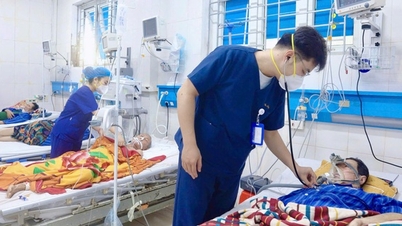

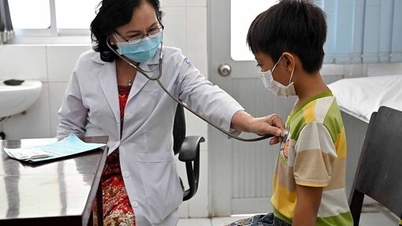


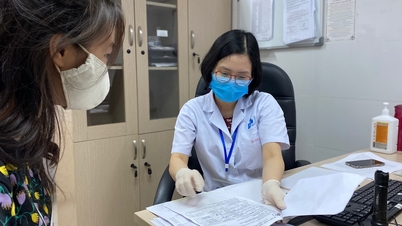

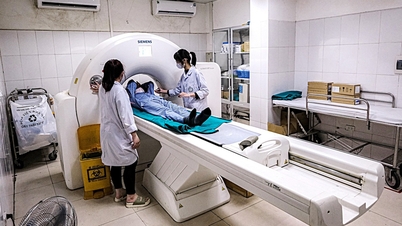
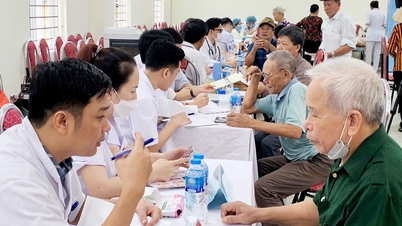

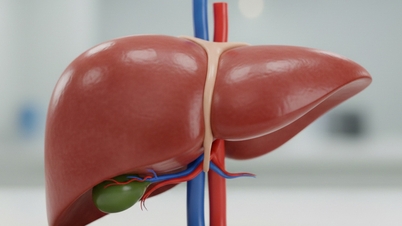



































































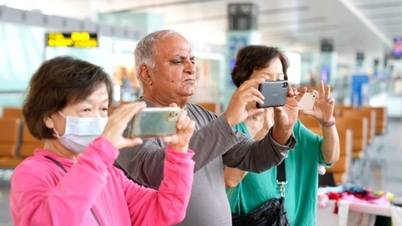

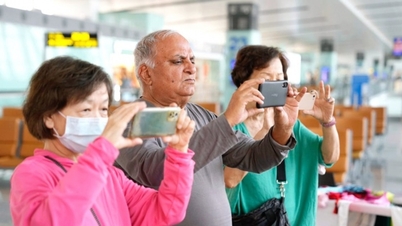

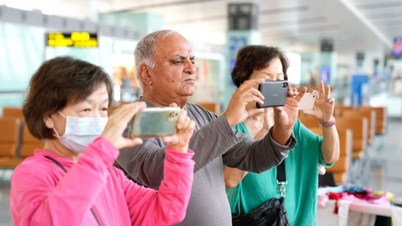



















Comment (0)